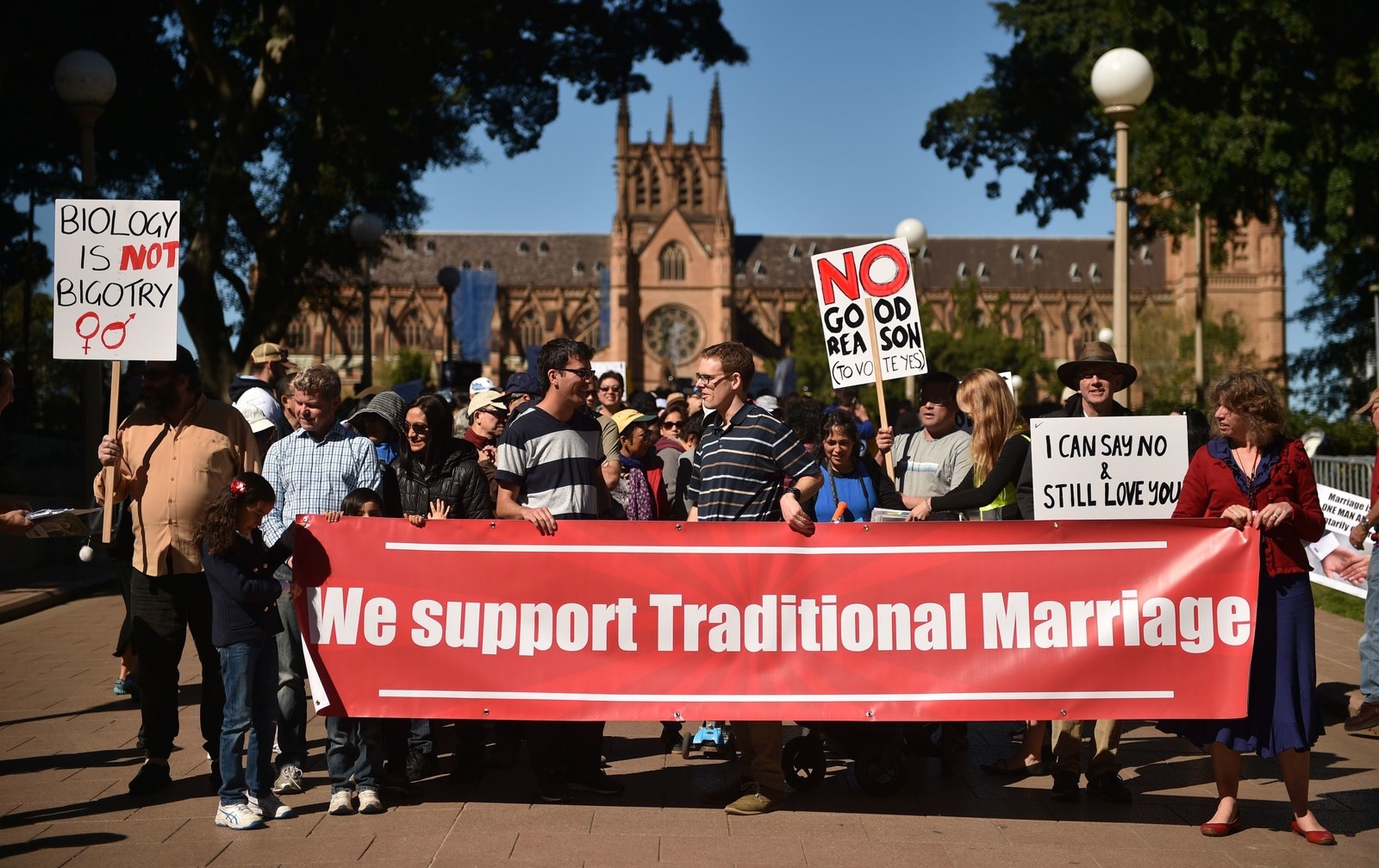
Volunteers for the "no" campaign in the same-sex marriage postal survey are being taught to raise concerns about "gay sex education", governments, and freedom of speech when they go door-to-door around Australia in coming weeks trying to convince people to reject same-sex marriage.
BuzzFeed News has listened to hours of audio from a number of training and induction video conference calls with people who have signed up to volunteer for the "no" campaign.
The campaign is directing volunteers to tap into fear and uncertainty when making the "no" case.
"What we are playing on is the natural suspicion and caution of people, especially when it comes to government," a trainer named Daniel from the Coalition for Marriage (CFM) told volunteers.
Daniel told the volunteers that those who were considering voting "yes" needed to question why they would vote "yes" to something with consequences that are not fully known.
"We just want these soft 'yes' voters to understand the real consequences of changing the definition of marriage," he said.
The Coalition government has refused to detail the wording of any same-sex marriage legislation that may follow the postal survey.
This has allowed opponents of same-sex marriage, including former prime minister John Howard and Australian Conservatives senator Cory Bernardi, to argue that a "yes" vote would be giving the government a "blank cheque" in writing legislation.
The "no" campaign is also training volunteers to focus on "gay sex education", which is generally code for the anti-bullying program Safe Schools.

"If this law changes, your child will be taught gay sex education," the CFM's Paul Kennedy told one training session.
Another way to play into people's fears, Kennedy said, was to refer to the full LGBTQI acronym slowly when talking to people.
"If you say LGBTIQ, that places doubt in people’s mind," he said. "LGBTQI … Simply saying that statement is enough to tell people there is more to this than I am being told."
Kennedy told those campaigning for the "no" vote to say that even talking about their views on marriage will be "illegal" if the "yes" side wins, and to claim Labor would install a "special branch of anti-discrimination inspectors for the gay lobby".
The federal Labor Party has in its platform a pledge to review the Australian Human Rights Commission Act to consider having a human rights commissioner for sexual orientation, gender identity and intersex issues, with similar powers to the other commissioners.
Volunteers for the "no" side have been told to wear a smile, be polite and not argue. If someone is aggressive or a strong "yes" voter, the volunteer is instructed to move on.
"We just don't have time to shift these people over."
Volunteers are told that 60% of voters aren't rusted on to either side, and that the main enemy is apathy as it is not compulsory to participate in the postal survey.
The key message from the "no" campaigners is the need to get people who may be voting "no" to return their ballot papers, but despite downplaying their chances in the media, on the calls there is an underlying sense of confidence that the "no" side is winning.
Kennedy said in more than one call to volunteers that a trial run of over 1,000 households had seen a large majority of those households say they would vote "no" in the postal survey.
Those who are soft "yes" voters, according to the CFM, are doing so out of compassion, and volunteers are told to present themselves as reasonable and compassionate in order to show people they aren't "bigots".

The "no" campaign is focusing on people aged 25-55. Tio Faulkner, a key leader on the "no" side, told an induction call that the CFM deliberately didn't spend advertising money during the electoral roll sign up period, as most of those who signed up were likely to be aged 18-25 and "yes" voters.
He also said that further advertisements "with more examples and causes for alarm" would be released in coming weeks.

